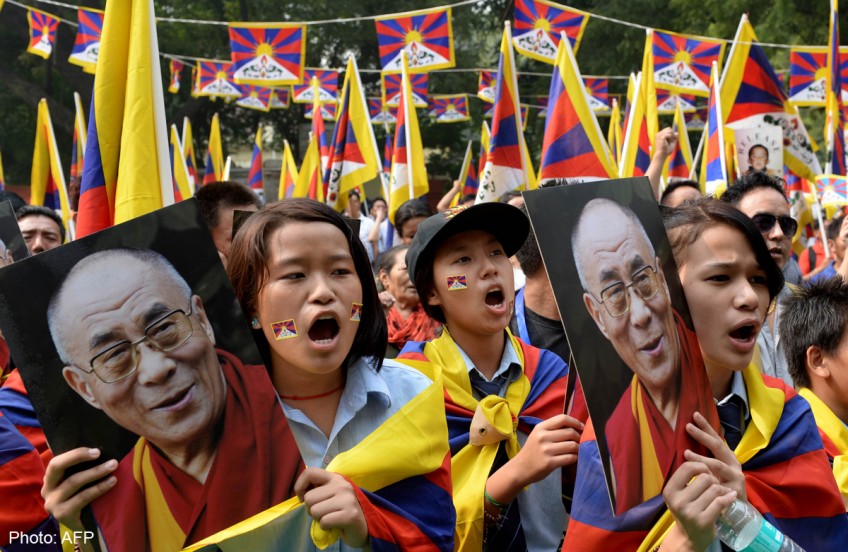China must befriend Tibet monks to build "impenetrable defence": Official

BEIJING - Chinese officials in Tibet must build an "impenetrable defence" against separatism and befriend monks and nuns in the restive and remote region, a senior official said in remarks published on Friday.
Tension in China's Tibetan regions is at its highest in years after a spate of self-immolation protests by Tibetans, which have led to a tougher security crackdown.
China defends its harsh rule in the mountainous region, saying it suffered from dire poverty, brutal exploitation and economic stagnation until 1950, when Communist troops"peacefully liberated" it.
China must grasp the heart of the people with one hand and seize the law with the other to strike down illegal groups, the ruling Communist Party chief in Tibet, Chen Quanguo, said in the official People's Daily newspaper.
To win favour with monks and nuns, officials must ensure all monasteries have electricity and running water, display national flags and images of government leaders, and get access to state television, newspapers and libraries, Chen said.
Officials must "to the greatest degree unite monks and nuns with the masses around the party and government and make them aware of the party's kindness," Chen said in a commentary.
With varying degrees of success, the government has tried to prevent Tibetans from accessing broadcasts from overseas, or any information about the Dalai Lama and the exiled government on the Internet.
Chen has stressed in the past that he would aim to drown out separatist voices in Tibet by confiscating satellite dishes, stepping up monitoring of online content and ensuring all telephone and internet users registered under their real names.
But many Tibetans are still able to get such news, either via illegal satellite television or by skirting Chinese internet restrictions. The Dalai Lama's picture and his teachings are also smuggled into Tibet, at great personal risk.
Beijing calls the Nobel Peace Prize laureate a "wolf in sheep's clothing" who seeks to use violent methods to establish an independent Tibet.
The Dalai Lama, who fled to India after a failed uprising in 1959, says he simply wants genuine autonomy for Tibet, and denies espousing violence.